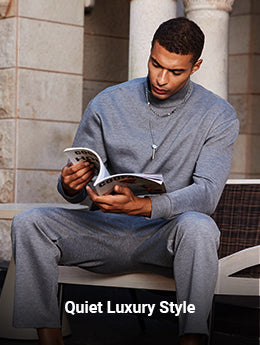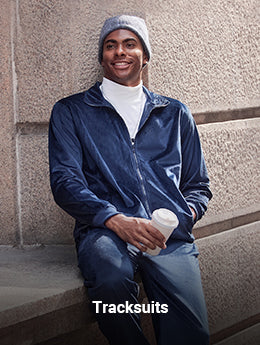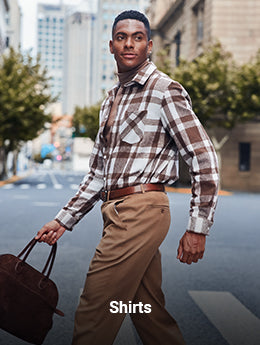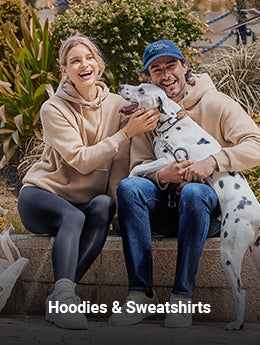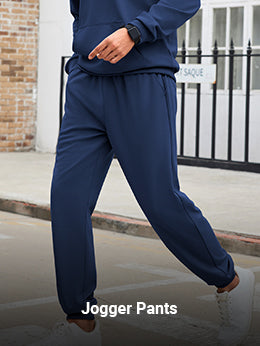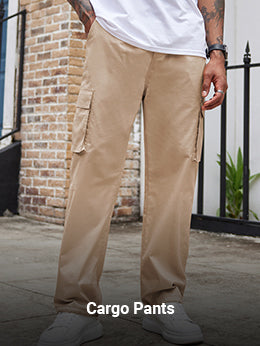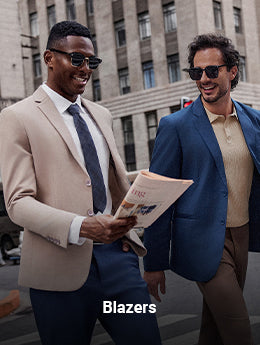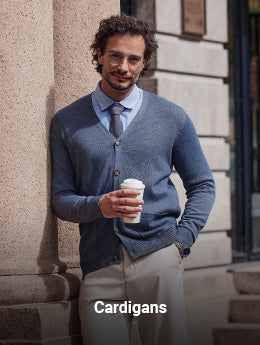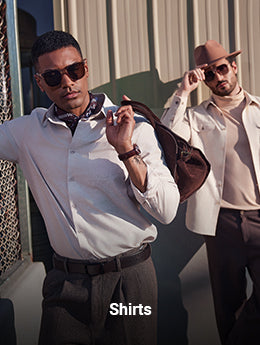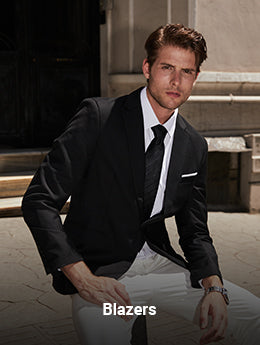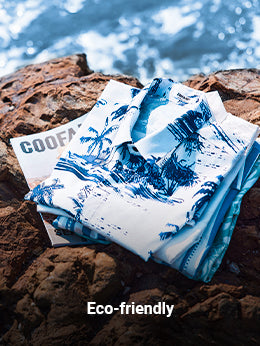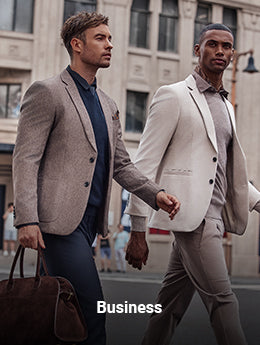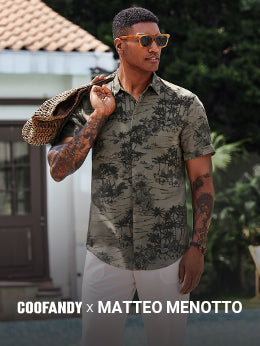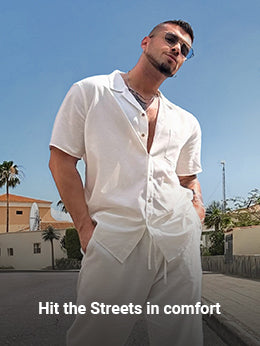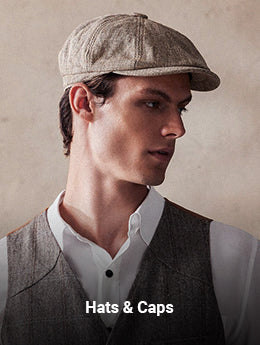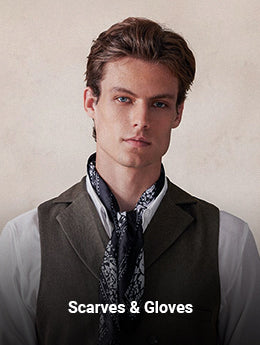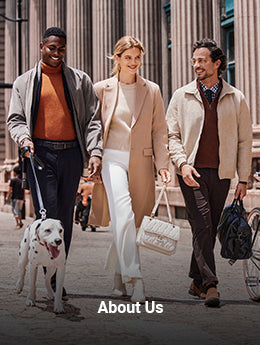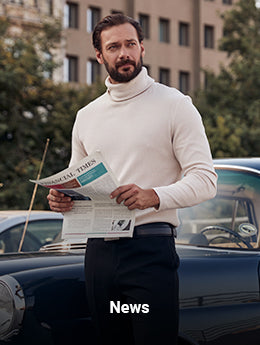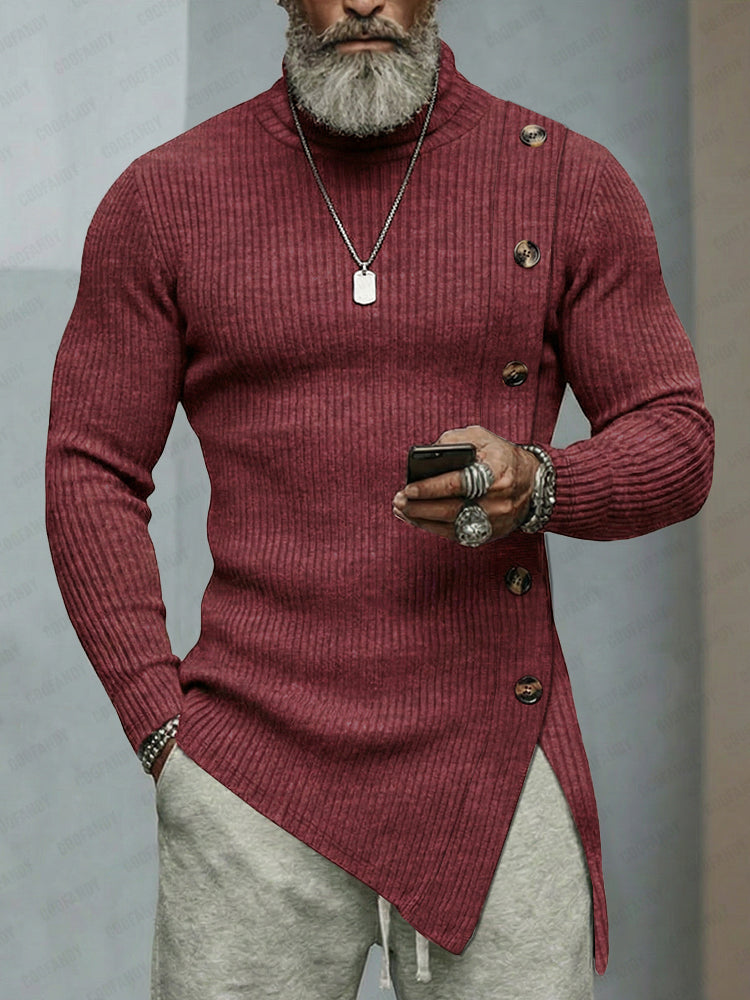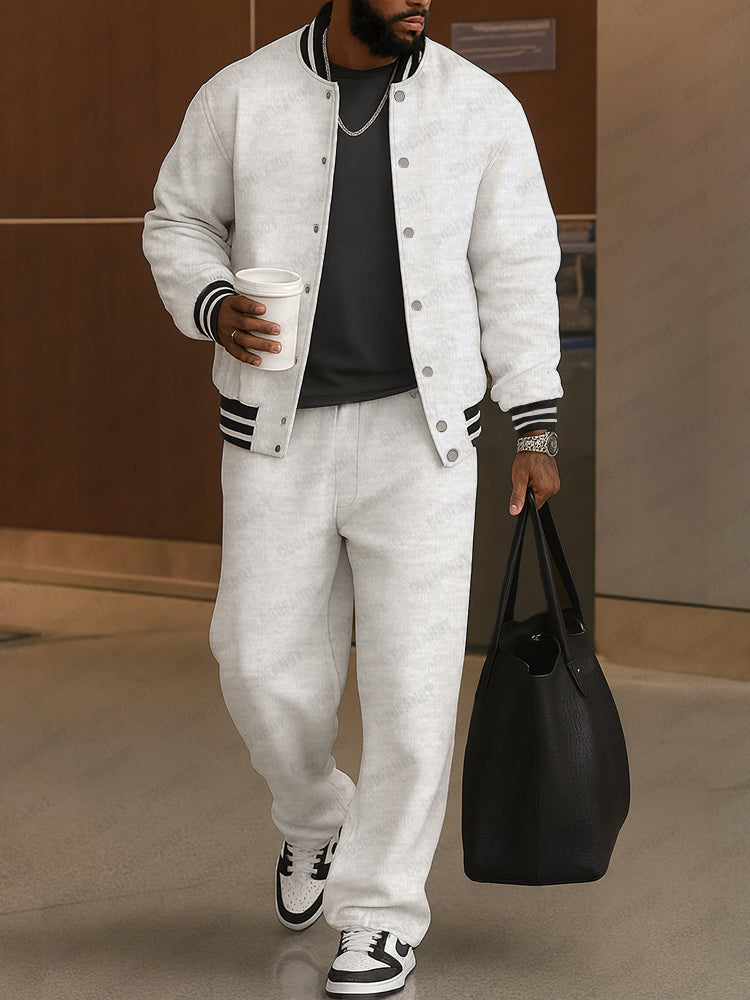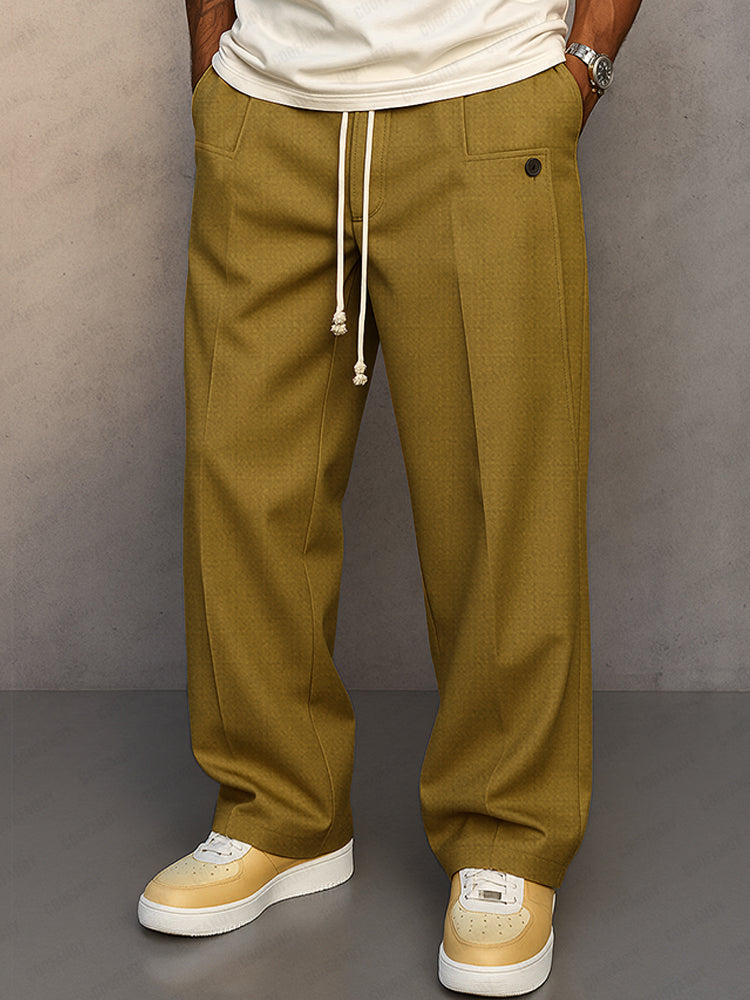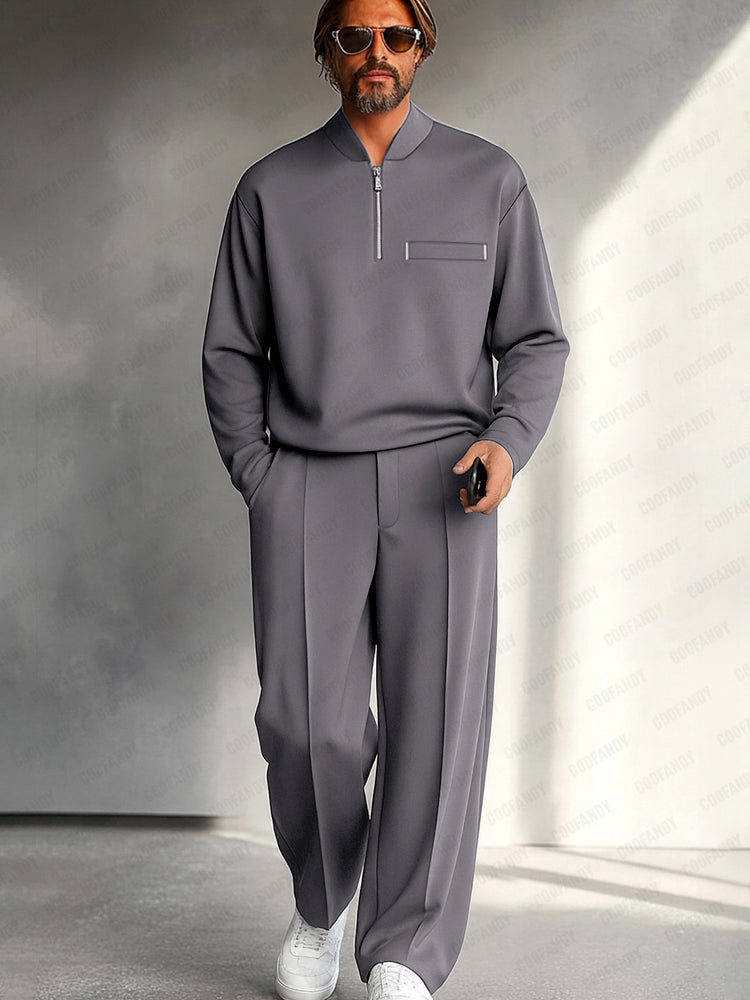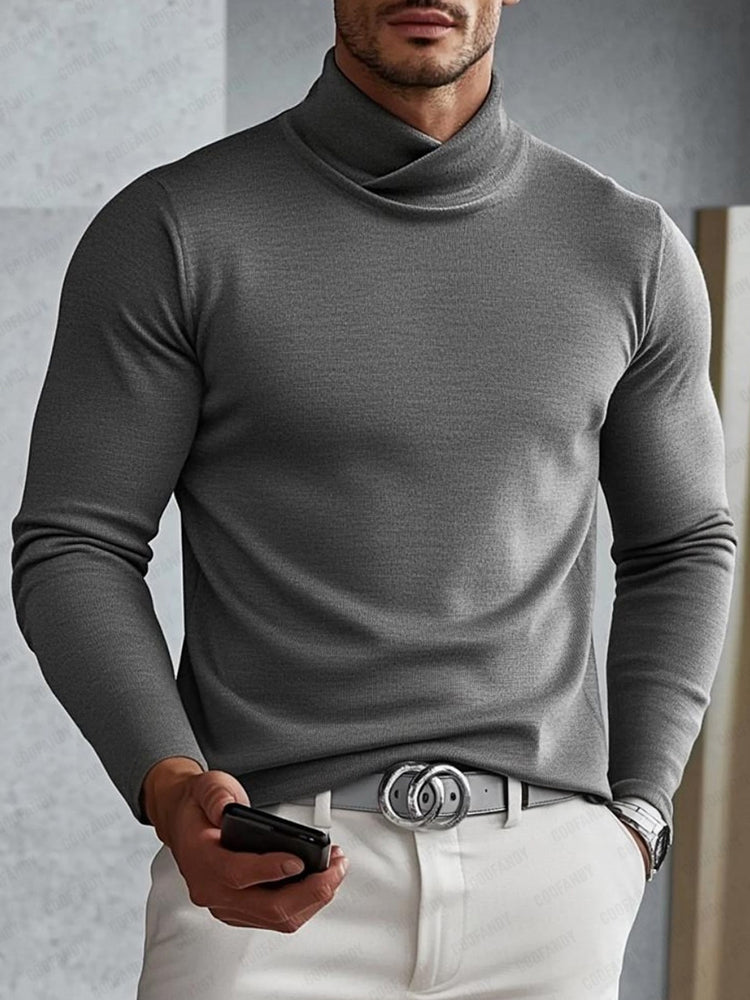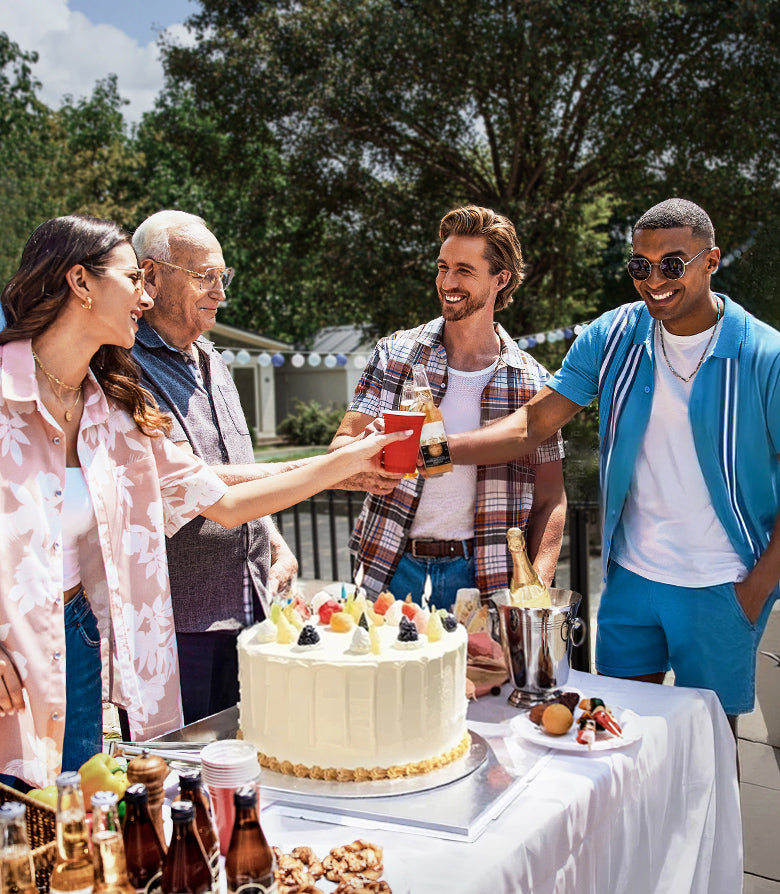Which Shirt-Pant Combinations Work Best for Men's Outfits?
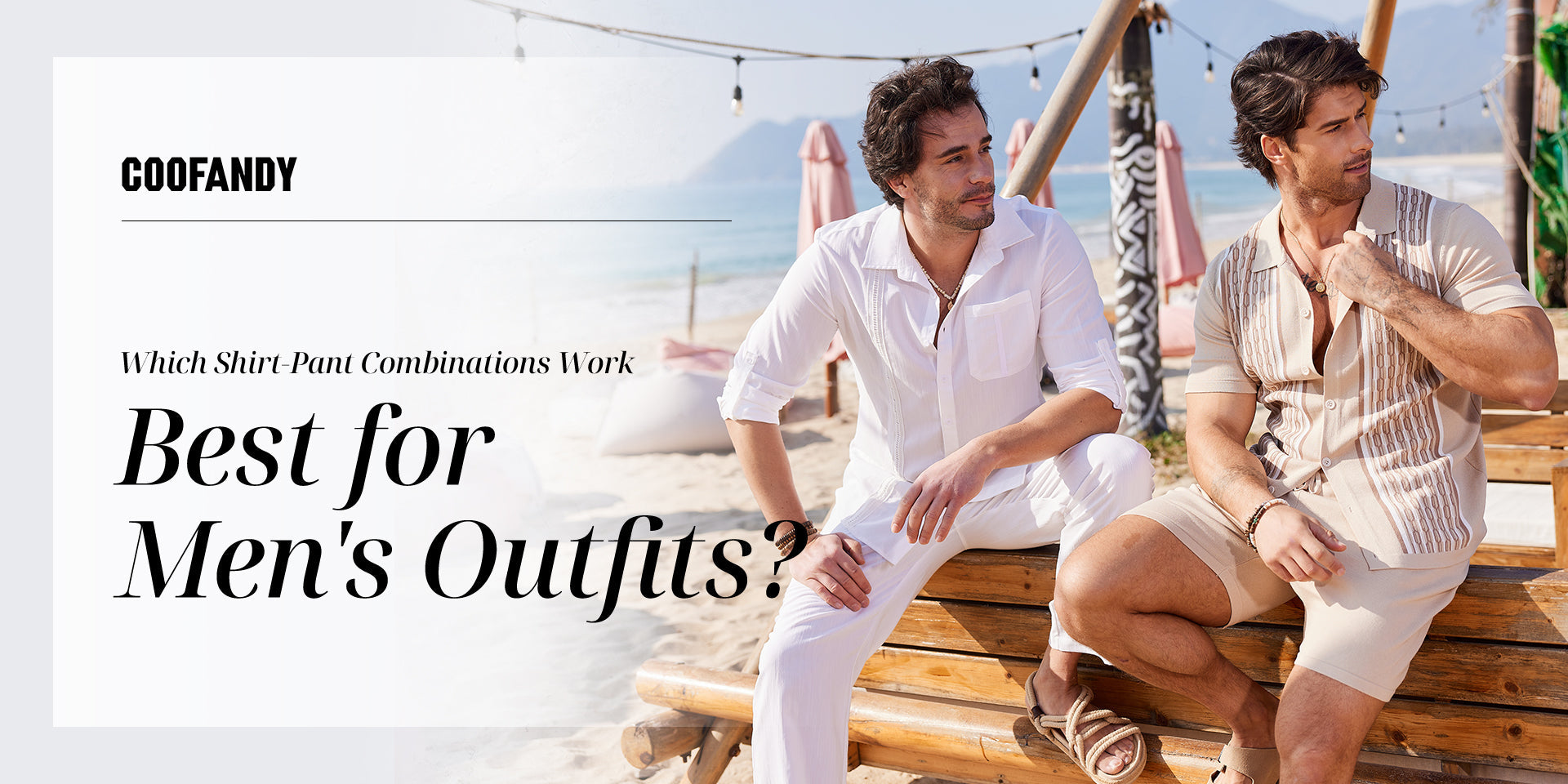
Staring at your closet with no idea what shirts and pants actually go together? This is the daily dilemma of most men. Putting together stylish, coordinated ensembles does not have to be so complicated. By adhering to some simple rules and handy principles, you can easily refresh your style and make getting dressed stress-free.
How Do You Master the Basics of Shirt-Pant Coordination?
Knowing the fundamental concepts that make certain pairings work better than others is vital before delving into specific combinations; these basics will serve as your style compass when putting outfits together.
Learn Color Theory
Color theory isn't hard once you get the basics.
- Complementary colors (opposite each other on the color wheel) create striking combinations - navy and orange, for example, or purple and yellow.
- Monochromatic schemes use different shades of the same color for a sleek, sophisticated appearance. Try several blues, from pale sky blue to dark navy.
- Contrast also works - light shirts with dark pants are a classic, balanced look that's appropriate almost anywhere.
Focus on Proper Fit
Even perfect color combinations look sloppy if the fit is wrong. For shirts, make sure shoulder seams line up with your actual shoulders, sleeves end at your wrist bone, and you can pinch 1-2 inches of fabric at the sides. For pants, the waist must be comfortable without a belt, the rise must fit your body type, and the length must give you a slight break at your shoes without bunching fabric.
Mix Different Textures
Fabric texture adds depth to your clothing. Blending textures creates visual appeal - like pairing a smooth cotton top with textured wool pants. Consider seasons too - lighter fabrics like linen and cotton in the summer, and heavier ones like flannel and wool in winter.

What Are the Most Reliable Shirt-Pant Color Combinations?
Before getting into specific color combos, it's helpful to know which ones always look good together. These reliable matches are the building blocks of a flexible wardrobe because they can adapt to many different occasions.
|
Shirt Color |
Pant Color |
Best For |
Style Notes |
|
White |
Navy |
Business, formal events |
Classic, high-contrast look that flatters most skin tones |
|
Black |
Formal occasions, interviews |
Crisp, formal combination that always looks intentional |
|
|
Khaki/Beige |
Casual outings, summer events |
Fresh, approachable look with a relaxed vibe |
|
|
Gray |
Office, smart-casual events |
Sophisticated neutral pairing, less severe than black |
|
|
Blue |
Khaki |
Business casual, everyday office |
Balanced combination with warm and cool tones |
|
Gray |
Office settings, presentations |
Professional look without being overly formal |
|
|
Black |
Evening events, creative workplaces |
Dramatic pairing that looks put-together |
|
|
Black |
Gray |
Creative environments, evening outings |
Modern, urban aesthetic with balanced contrast |
|
Black |
Evening events, creative settings |
Sleek, minimalist look (add texture or accessories) |
|
|
Beige/Khaki |
Casual evenings, creative workplaces |
Striking contrast that softens black's severity |
|
|
Colored |
Navy |
Social events, casual settings |
Anchors bold colors with a reliable neutral |
|
Gray |
Office, casual outings |
Versatile neutral that works with most colors |
|
|
Khaki |
Casual settings, spring/summer |
Warm neutral that balances cool-toned shirts |
|
|
Black |
Evening events, bold statements |
High-contrast foundation for vibrant colors |
Pairing Tips for Colored Shirts
For colored shirts beyond basics, remember this simple rule: the bolder your shirt color, the more neutral your pants should be. Burgundy and forest green work well with khaki or gray, while brighter colors like yellow or orange need navy or charcoal to balance their intensity. Pastel shirts pair nicely with navy, gray, or khaki for a seasonal spring/summer look.

How Can You Successfully Mix Patterns in Your Outfits?
Mixing patterns adds visual interest to your outfits but requires some basic guidelines to look intentional rather than chaotic.
Start with Solid + Pattern Combinations
A solid shirt with patterned pants makes the pants your outfit's focal point. This works well with subtle patterns like small checks or herringbone pants paired with solid navy, white, or light blue shirts.
Patterned shirts with solid pants put the emphasis on your upper body. Striped or checked shirts complement navy, gray, or khaki pants nicely. This approach works for most occasions and is the easiest way to incorporate patterns.
Try Advanced Pattern Mixing
When mixing two patterns, contrast without losing color harmony. Unite various types of patterns together - stripes and checks, or dots and plaids. Change the scale of your patterns - small and larger. A shirt with small checks goes well with pants having broader stripes or a bigger plaid. The difference prevents visual rivalry.
Coordinate Colors Across Patterns
To apply a cohesive mixing of patterns, find a common color in both pieces. A blue-and-white stripe shirt pairs well with navy-and-gray checked pants since the blue bridges the gap. Or, create one pattern background (like black and white), and the other adds color. That way, there is an order, and the outfit won't look too busy.
Avoid These Common Pattern Mixing Mistakes
Don't mix patterns of the similar scale because they will compete for attention. Don't mix too many colors across patterns - stick to a minimum palette of 2-3 dominant colors. Pay extreme caution to shirts with very bold patterns like large florals or graphic prints. These statement pieces are best paired with solids. Remember that texture (like herringbone or oxford cloth) can function as a subtle pattern that will work with more obvious patterns.

How to Wear Shirt and Pants for Different Occasions
Different settings call for different levels of formality in your shirt-pant combinations. Knowing what works where will ensure you're appropriately dressed for any occasion. Here's a quick reference guide for foolproof combinations across various contexts.
|
Style |
Occasion |
Shirt Colors/Patterns |
Pant Colors |
Notes |
|
Business Formal |
Interviews |
White, light blue
|
Navy, charcoal gray
|
Add coordinated tie and blazer |
|
Executive meetings |
Crisp white, subtle stripes |
Navy, charcoal, black |
Focus on quality fabrics and perfect fit |
|
|
Business Casual |
Office-appropriate |
Light blue, white, subtle patterns |
Khaki, navy, gray |
Well-pressed clothes with quality shoes |
|
Client meetings |
Light blue, white, subtle patterns |
Navy, gray |
Shows respect while maintaining approachability |
|
|
Casual |
Weekend outfits |
Chambray, casual checks |
Khaki, olive, dark jeans |
Comfortable yet intentional |
|
Date night |
Well-fitted white, blue, subtle pattern |
Dark jeans, chinos, black pants |
Neither too casual nor too formal |
|
|
Social gatherings |
Burgundy, forest green, navy, white |
Neutral pants |
Express more personality |
|
|
Seasonal |
Summer |
Light blue, white, pastels |
Khaki, light gray, stone |
Lighter fabrics like linen or cotton blends |
|
Fall/Winter |
Navy, burgundy, forest green |
Charcoal, navy, brown |
Heavier fabrics like flannel or wool blends |

FAQs About Shirt-Pant Pairing for Men
Q: Can a black shirt be paired with black pants?
A: Yes, this all-black ensemble does work. To avoid looking like a waitstaff, add some texture differences or a subtle pattern. A contrasting belt or shoes breaks up the monotony.
Q: What can I combine with patterned shirts and colored pants?
A: Pick a pants color that appears somewhere in your shirt pattern. Have neutral-colored pants with bold patterns. Keep small patterns for formal occasions and bigger ones for informal occasions.
Q: Are there rules for tucked vs. untucked shirts?
A: Tuck in dress shirts, especially with formal pants. Casual shirts with flat bottoms can be left untucked with jeans or casual chinos. Pants usually determine the approach-dressier pants demand tucked shirts.
Q: How can I make my outfit look more expensive?
A: Focus on good fit, quality fabrics, and proper care. Well-pressed, and good-fitting clothes always look better than fashionable but poorly fitting clothes. Good shoes and a nice belt immediately elevate your style.
Read More
- Beat the Heat with Cotton Linen Pants: The Ultimate Summer Men's Wardrobe Staple– COOFANDY
- Elevate Your Beach Style with our Cotton Linen Shirt– COOFANDY
- Stylish Men's Cotton Linen Shirts | Must-Have Summer Wear– COOFANDY
- Ultimate Knitwear Care Guide– COOFANDY
- Celebrate Love This Valentine's Day: Top COOFANDY Styles for Him– COOFANDY
